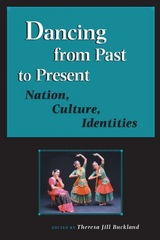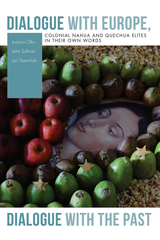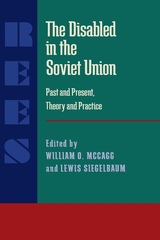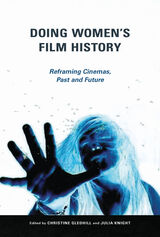198 books about Past and 4
start with D
198 books about Past and 4
198 books about Past
4 start with D start with D
4 start with D start with D

Dancing from Past to Present
Nation, Culture, Identities
Edited by Theresa Jill Buckland
University of Wisconsin Press, 2007
This groundbreaking collection combines ethnographic and historic strategies to reveal how dance plays crucial cultural roles in various regions of the world, including Tonga, Java, Bosnia-Herzegovina, New Mexico, India, Korea, Macedonia, and England. The essays find a balance between past and present and examine how dance and bodily practices are core identity and cultural creators. Reaching beyond the typically Eurocentric view of dance, Dancing from Past to Present opens a world of debate over the role dance plays in forming and expressing cultural identities around the world.
[more]

Dialogue with Europe, Dialogue with the Past
Colonial Nahua and Quechua Elites in Their Own Words
Justyna Olko
University Press of Colorado, 2018
Dialogue with Europe, Dialogue with the Past is a critical, annotated anthology of indigenous-authored texts, including the Nahua, Quechua, and Spanish originals, through which native peoples and Spaniards were able to convey their own perspectives on Spanish colonial order. It is the first volume to bring together native testimonies from two different areas of Spanish expansion in the Americas to examine comparatively these geographically and culturally distant realities of indigenous elites in the colonial period.
In each chapter a particular document is transcribed exactly as it appears in the original manuscript or colonial printed document, with the editor placing it in historical context and considering the degree of European influence. These texts show the nobility through documents they themselves produced or caused to be produced—such as wills, land deeds, and petitions—and prioritize indigenous ways of expression, perspectives, and concepts. Together, the chapters demonstrate that native elites were independent actors as well as agents of social change and indigenous sustainability in colonial society. Additionally, the volume diversifies the commonly homogenous term “cacique” and recognizes the differences in elites throughout Mesoamerica and the Andes.
Showcasing important and varied colonial genres of indigenous writing, Dialogue with Europe, Dialogue with the Past reveals some of the realities, needs, strategies, behaviors, and attitudes associated with the lives of the elites. Each document and its accompanying commentary provide additional insight into how the nobility negotiated everyday life. The book will be of great interest to students and researchers of Mesoamerican and Andean history, as well as those interested in indigenous colonial societies in the Spanish Empire.
Contributors: Agnieszka Brylak, Maria Castañeda de la Paz, Katarzyna Granicka, Gregory Haimovich, Anastasia Kalyuta, Julia Madajczak, Patrycja Prządka-Giersz
In each chapter a particular document is transcribed exactly as it appears in the original manuscript or colonial printed document, with the editor placing it in historical context and considering the degree of European influence. These texts show the nobility through documents they themselves produced or caused to be produced—such as wills, land deeds, and petitions—and prioritize indigenous ways of expression, perspectives, and concepts. Together, the chapters demonstrate that native elites were independent actors as well as agents of social change and indigenous sustainability in colonial society. Additionally, the volume diversifies the commonly homogenous term “cacique” and recognizes the differences in elites throughout Mesoamerica and the Andes.
Showcasing important and varied colonial genres of indigenous writing, Dialogue with Europe, Dialogue with the Past reveals some of the realities, needs, strategies, behaviors, and attitudes associated with the lives of the elites. Each document and its accompanying commentary provide additional insight into how the nobility negotiated everyday life. The book will be of great interest to students and researchers of Mesoamerican and Andean history, as well as those interested in indigenous colonial societies in the Spanish Empire.
Contributors: Agnieszka Brylak, Maria Castañeda de la Paz, Katarzyna Granicka, Gregory Haimovich, Anastasia Kalyuta, Julia Madajczak, Patrycja Prządka-Giersz
[more]

The Disabled in the Soviet Union
Past and Present, Theory and Practice
William O. McCagg
University of Pittsburgh Press, 1989
In topics ranging from industrial accident prevention before and during Stalin's industrialization drive to the long and complex history of the Soviet “science” called defectology, the essays in this collection chronicle the responses of the state and society to a variety of disabled groups and disabilities. Also included, in addition to the editors, are Julie Brown, Vera Dunham, David Joravsky, Janet Knox and Alex Kozulin, Stephen and Ethel Dunn, Bernice Madison, Paul Raymond, and Mark Field.
This unusual and provocative collection brings to light a dimension of Soviet history and policy rarely explored.
This unusual and provocative collection brings to light a dimension of Soviet history and policy rarely explored.
[more]

Doing Women's Film History
Reframing Cinemas, Past and Future
Edited by Christine Gledhill and Julia Knight
University of Illinois Press, 2015
Research into and around women's participation in cinematic history has enjoyed dynamic growth over the past decade. A broadening of scope and interests encompasses not only different kinds of filmmaking--mainstream fiction, experimental, and documentary--but also practices--publicity, journalism, distribution and exhibition--seldom explored in the past. Cutting-edge and inclusive, Doing Women's Film History ventures into topics in the United States and Europe while also moving beyond to explore the influence of women on the cinemas of India, Chile, Turkey, Russia, and Australia. Contributors grapple with historiographic questions that cover film history from the pioneering era to the present day. Yet the writers also address the very mission of practicing scholarship. Essays explore essential issues like identifying women's participation in their cinema cultures, locating previously unconsidered sources of evidence, developing methodologies and analytical concepts to reveal the impact of gender on film production, distribution and reception, and reframing film history to accommodate new questions and approaches. Contributors include: Kay Armatage, Eylem Atakav, Karina Aveyard, Canan Balan, Cécile Chich, Monica Dall'Asta, Eliza Anna Delveroudi, Jane M. Gaines, Christine Gledhill, Julia Knight, Neepa Majumdar, Michele Leigh, Luke McKernan, Debashree Mukherjee, Giuliana Muscio, Katarzyna Paszkiewicz, Rashmi Sawhney, Elizabeth Ramirez Soto, Sarah Street, and Kimberly Tomadjoglou.
[more]
READERS
Browse our collection.
PUBLISHERS
See BiblioVault's publisher services.
STUDENT SERVICES
Files for college accessibility offices.
UChicago Accessibility Resources
home | accessibility | search | about | contact us
BiblioVault ® 2001 - 2024
The University of Chicago Press









